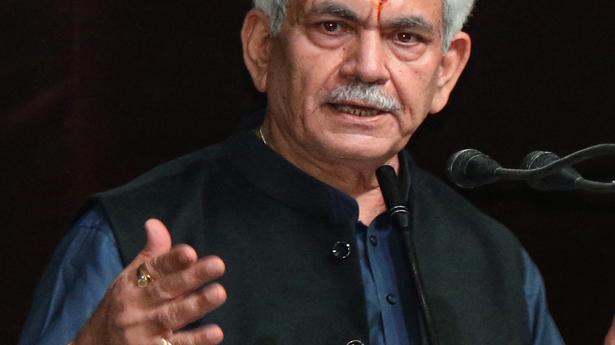
J&K govt. approves first-ever FDI policy for UT
The Hindu
It aims to facilitate investments exceeding ₹100 crore with minimum 51% foreign stake
SRINAGAR
In a first, the Lieutenant Governor's administration on Wednesday approved a policy on foreign direct investment (FDI) for J&K with a minimum of 51% foreign stake.
L-G Manoj Sinha, who headed a meeting of the Administrative Council (AC) in Jammu, gave his nod for the Policy for Promotion of Foreign Investment in the industrial sector in J&K.
"The new policy is based on the guiding framework on FDI issued by the Government of India through the Reserve Bank of India (RBI) and the Department for Promotion of Industry and Internal Trade (DPIIT) and will be valid for the next 10 years," a government spokesman said.
The J&K FDI policy aims to facilitate foreign investments greater than ₹100 crore with a minimum of 51% foreign stake, he added.
It will pave way for identifying parcels of land in various industrial estates "to be given exclusively to industries with foreign investments, including vertical rise premises in the form of multipurpose buildings, complexes, with plug-and-play facilities".
The government said the land allotment process will be regulated by the J&K Industrial Land Allotment Policy, 2021-30. The UT administration also decided to extend benefits, incentives, and support under the Jammu and Kashmir Industrial Policy 2021-30 and New Central Sector Scheme to these units.

 Run 3 Space | Play Space Running Game
Run 3 Space | Play Space Running Game
 Traffic Jam 3D | Online Racing Game
Traffic Jam 3D | Online Racing Game
 Duck Hunt | Play Old Classic Game
Duck Hunt | Play Old Classic Game

















